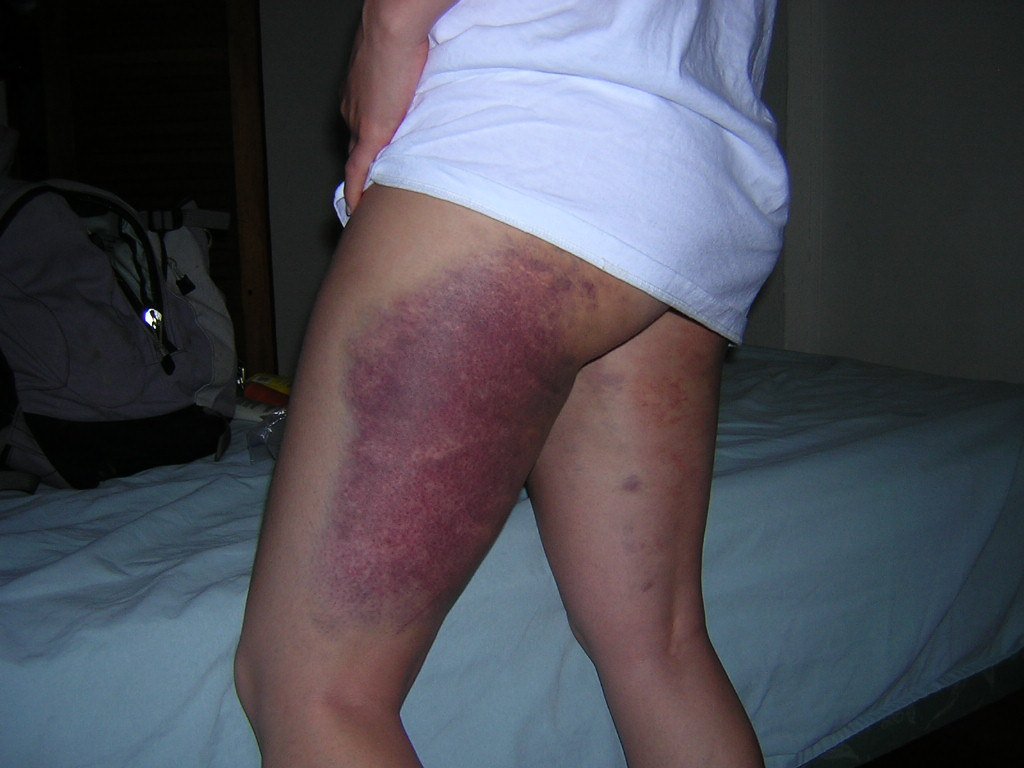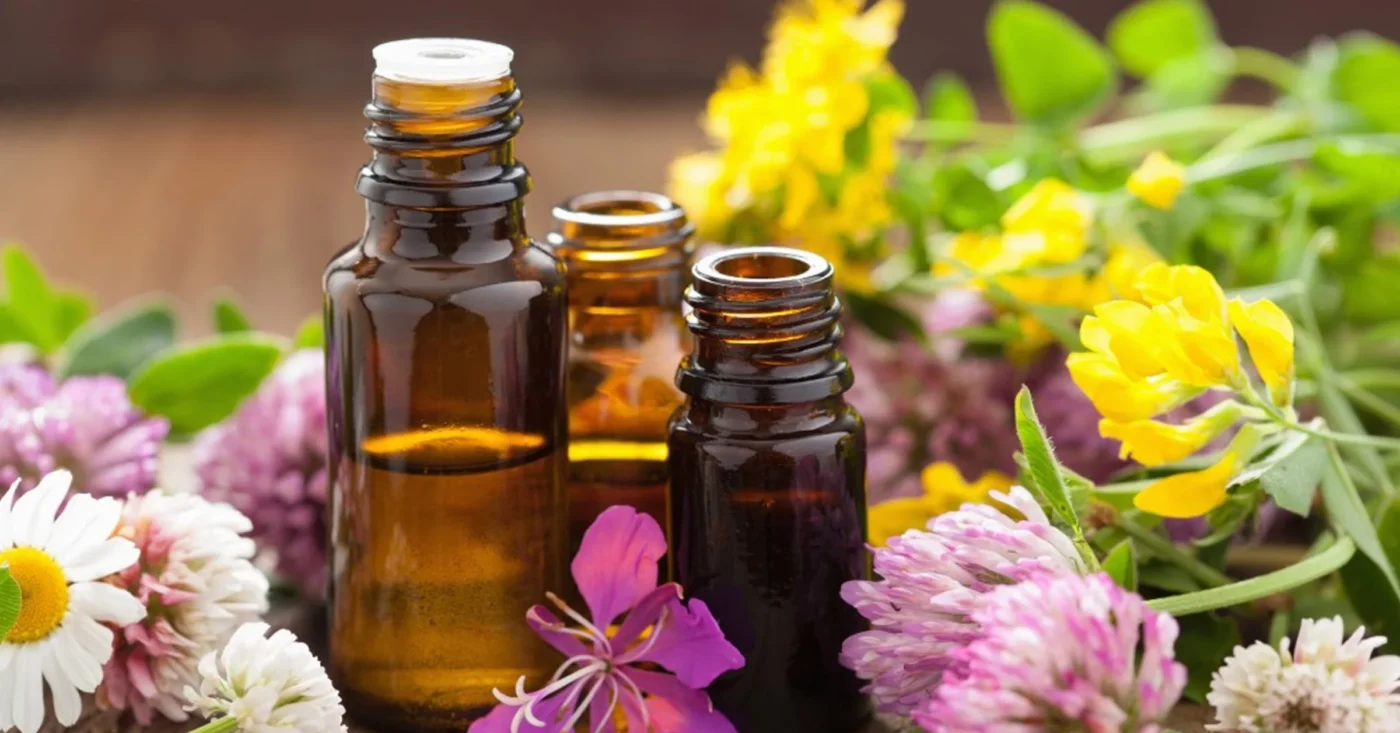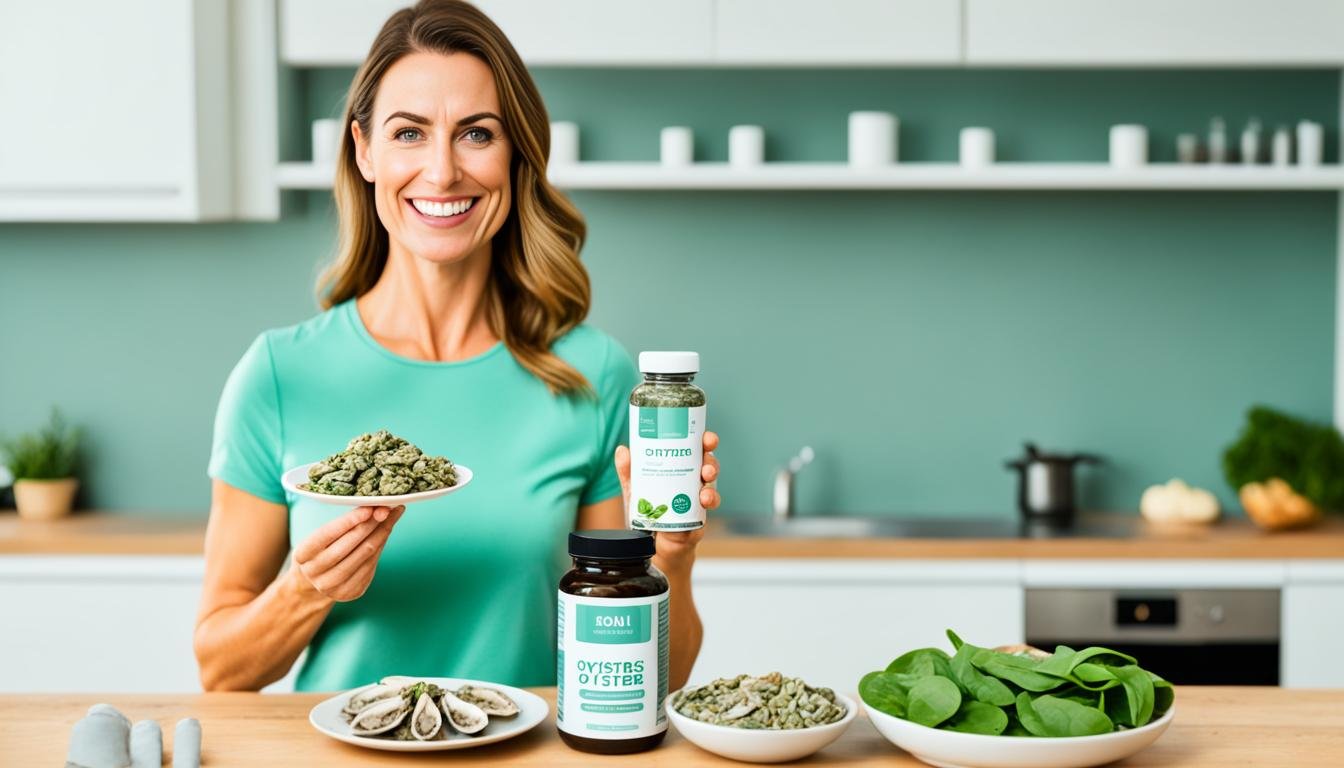
Bruises are a common occurrence, resulting from the impact or injury to the skin that causes blood vessels under the skin to rupture and leak blood. While bruises generally heal on their own, they can be uncomfortable and unsightly. For those seeking a natural remedy for faster healing, essential oils offer a promising solution. In this comprehensive guide, we will delve into the world of essential oils and their potential benefits in treating bruises.
Understanding Bruises
What causes bruises?
When an injury occurs, the delicate blood vessels under the skin can rupture, resulting in blood leaks. The body’s natural healing process then takes over, causing the characteristic discoloration of bruises.
Bruises, those colorful marks that appear on our skin after an injury, are caused by damaged blood vessels under the skin. When these tiny vessels, called capillaries, burst due to impact or pressure, blood leaks out and gets trapped beneath the skin’s surface. This trapped blood is what gives a bruise its characteristic discoloration, which changes over time as the body reabsorbs the blood.
Here are some of the most common causes of bruises:
- Bumps and falls: This is probably the most familiar culprit, from tripping on the sidewalk to bumping into furniture. Any sudden impact can damage the capillaries, leading to a bruise.
- Sports injuries: Bruises are common in contact sports like football, basketball, and hockey, but can also occur in non-contact sports like soccer and running.
- Medical procedures: Certain injections, blood draws, and surgeries can cause bruising, especially at the puncture site.
- Certain medications: Some medications, such as blood thinners and anticoagulants, can make you bruise more easily.
- Vitamin deficiencies: Deficiencies in vitamin C, K, and B12 can also contribute to easier bruising.
- Medical conditions: Certain medical conditions, such as liver disease, anemia, and certain blood disorders, can make you more prone to bruising.
It’s important to note that bruising can be a normal and harmless occurrence, but there are some situations where it’s important to see a doctor. This includes:
- Excessive or unexplained bruising: If you’re bruising easily for no apparent reason, it could be a sign of an underlying medical condition.
- Bruising that doesn’t heal within a normal timeframe: Bruises usually fade within a few weeks, but if yours are lingering for longer, it’s worth getting checked out.
- Bruising accompanied by other symptoms: If you have bruising along with fever, fatigue, joint pain, or other concerning symptoms, it’s best to err on the side of caution and see a doctor.
By understanding the causes of bruises and knowing when to seek medical attention, you can ensure that these colorful marks are nothing more than a temporary inconvenience.
Types of bruises
Bruises can vary in severity and appearance. Normal bruises are the most common type, characterized by their blue or purple color. Hematomas refer to bruises that form a lump due to clotted blood, while ecchymosis refers to larger bruises that may extend to deeper tissues.
How Essential Oils Aid in Bruise Healing

Anti-inflammatory properties
An essential aspect to consider when using essential oils for bruise healing is their anti-inflammatory properties. Inflammation is the body’s natural response to injuries, including bruises. When a bruise occurs, the body releases inflammatory substances to the affected area, causing redness, swelling, and even discomfort. While this reaction is part of the body’s defense mechanism, excessive inflammation can prolong the healing process and intensify discomfort.
Certain essential oils are highly prized for their anti-inflammatory properties. They contain compounds that can inhibit the inflammatory processes within the body, leading to a reduction in swelling and pain, and promoting faster healing.
- Arnica Essential Oil: Arnica is known for its active compounds like helenalin, a potent anti-inflammatory agent. It can help control inflammation and accelerate the healing process in bruises.
- Frankincense Essential Oil: Incensole acetate, a key compound in Frankincense, exhibits significant anti-inflammatory effects. It can help reduce inflammation, decrease pain, and support skin health.
- Helichrysum Essential Oil: Helichrysum contains italidiones, which possess strong anti-hematoma properties, excellent for the treatment of bruises and inflammation.
These essential oils work by interfering with the inflammatory pathways in your body, reducing the production of inflammatory substances, therefore minimizing tenderness, swelling, and redness around the bruise.
However, while using these essential oils for their anti-inflammatory properties, it’s vital to ensure proper dilution. Pure essential oils are highly concentrated and may cause skin irritation if not correctly diluted. Use a carrier oil like jojoba or coconut oil to dilute the essential oil, then apply it to the bruise.
Always perform a patch test before using a new oil to prevent any skin reactions. Also, consider consulting with a healthcare professional or a qualified aromatherapist if you have any underlying health conditions or sensitivities.
Understanding the anti-inflammatory properties of these oils and using them correctly can make a big difference in speeding up the recovery process from bruises, reducing discomfort significantly, and promoting overall skin health.
Improved blood circulation
Enhancing blood circulation is a key factor in promoting the healing of bruises. The presence of enhanced blood flow quickly delivers necessary nutrients and oxygen to the bruise site, accelerating the healing process, reducing inflammation and enabling the reabsorption of pooled blood in the affected area.
Certain essential oils are particularly effective at stimulating blood circulation due to their vasodilating properties — their ability to cause blood vessels to expand, allowing a greater volume of blood to flow through more rapidly. Here are some of the top essential oils associated with improved blood circulation:
- Helichrysum Essential Oil: Highly regarded for its circulatory benefits, applying diluted Helichrysum can stimulate blood flow to the bruised area, allowing for faster delivery of nutrients and removal of waste products, which often accelerates the healing process.
- Cypress Essential Oil: Cypress oil is known for its ability to increase circulation. Its stimulating effect can boost blood flow to the site of a bruise, promoting quicker healing and reducing the bruise’s appearance over time.
- Ginger Essential Oil: Ginger essential oil is another potent stimulator of blood flow. Its warming effect helps dilate blood vessels, promoting a rush of healthy, oxygenated blood to the bruised area.
When using these essential oils for their circulatory benefits, it’s important to properly dilute them with a carrier oil like almond or coconut oil to prevent irritation, due to their high concentration. Then, apply the diluted oil to the bruise and lightly massage it into the skin to stimulate blood flow.
As with any new treatment, it’s a good idea to perform a patch test on a small area of skin to ensure no adverse reactions occur. And, as always, if you’re currently under any medication or have a pre-existing condition, consult with a healthcare provider before beginning any new treatments.
Incorporating these essential oils into your bruise recovery routine can not only promote faster healing but also reduce discomfort and discoloration associated with bruising. Remember, even natural remedies require patience — give your body the time it needs to heal naturally.
Antioxidant properties
Essential oils are rich in antioxidants, which play a crucial role in repairing damaged cells and tissues. These antioxidants help counteract oxidative stress, supporting the body’s healing mechanisms. Oils such as arnica contain potent antioxidants that aid in the recovery of bruised skin.
Top Essential Oils for Bruise Healing
When it comes to using essential oils for bruise healing, several oils have shown promising results. It’s important to note that essential oils should always be diluted before use and patch tested to ensure compatibility with individual skin types. Here are some of the top essential oils for bruise healing:
1. Arnica essential oil
Arnica essential oil is widely recognized for its anti-inflammatory and analgesic properties. It can help reduce pain, inflammation, and swelling associated with bruises. To use arnica essential oil, dilute it with a carrier oil and gently massage it into the bruised area.
2. Helichrysum essential oil
Helichrysum essential oil is renowned for its ability to reduce swelling and pain. Additionally, it possesses regenerative properties that contribute to the healing process of damaged skin. To utilize helichrysum essential oil, mix it with a carrier oil and apply it to the bruised area using gentle circular motions.
3. Lavender essential oil
Lavender essential oil is known for its calming and soothing effects on the skin. It can help reduce pain and promote cell rejuvenation, aiding in the speedy healing of bruises. Dilute lavender essential oil with a carrier oil, such as coconut or jojoba oil, and apply it to the bruise as needed.
4. Frankincense essential oil
Frankincense essential oil boasts anti-inflammatory and wound healing properties, making it a valuable ally in promoting bruise healing. It may also help reduce the appearance of bruises over time. Dilute frankincense essential oil with a carrier oil and gently massage it into the bruised area to experience its benefits.
5. Rosemary (Rosmarinus officinalis)
Rosemary (Rosmarinus officinalis) is a perennial woody herb with fragrant, needle-like leaves and white, pink, purple, or blue flowers. Native to the Mediterranean region, it is a member of the mint family and is noted for its distinctive, invigorating scent. Known for its versatile uses, rosemary has been extensively used throughout history for its medicinal properties, culinary applications, and ornamental purposes.
In terms of its medical properties, rosemary is often used as an essential oil and is prized for its potential to improve digestion, boost memory and concentration, alleviate muscle pain, and promote hair growth. The oil is derived from the leaves of the plant through a process of steam distillation and is characterized by a strong, refreshing aroma.
In the kitchen, rosemary leaves, both fresh and dried, are commonly used as a seasoning for a variety of dishes due to their rich, pungent flavor. The plant is also a popular choice in landscaping for its aesthetic appeal and resistance to pests and diseases.
Please note that while rosemary has many potential health benefits, it should be used responsibly and under the guidance of a healthcare professional, especially in oil form, as it can cause allergic reactions in some individuals.
6. Turmeric (Curcuma longa)
Turmeric (Curcuma longa), a powerful spice renowned for its anti-inflammatory benefits, has been spotlighted in a 2013 study for its role in pain management and healing when used in conjunction with frankincense. The study suggested that while frankincense contributed to an improved appearance of bruises, it was the turmeric that played a more significant role in alleviating pain, likely due to its potent anti-inflammatory effects.
For topical application, it’s advisable to use turmeric in its essential oil form. Ensure that the turmeric essential oil is adequately diluted with a carrier oil before applying it directly onto the bruised site to harness its therapeutic properties.
Other Natural Remedies to Complement Essential Oils
In addition to essential oils, several other natural remedies can enhance the healing process of bruises. These remedies work synergistically with essential oils to alleviate discomfort and speed up recovery. Consider incorporating the following complementary approaches:
1. Cold compress
A cold compress can provide immediate relief and reduce swelling associated with bruises. Simply apply a cold pack or a towel soaked in cold water to the bruised area for 10-15 minutes several times a day.
2. Aloe vera gel
Aloe vera gel is well-known for its soothing and anti-inflammatory properties. Applying a thin layer of pure aloe vera gel to the bruise can help expedite healing and alleviate discomfort.
3. Elevating the affected area
Elevating the bruised area can help minimize swelling by reducing blood flow to the site. Prop up the injured limb or use pillows to keep the bruised area elevated whenever possible.
Tips for Using Essential Oils for Bruise Healing
To make the most out of essential oils for bruise healing, it’s important to follow a few essential tips. These guidelines will ensure safety, efficacy, and optimal results:
1. Conducting patch tests
Patch testing is crucial to check for potential allergic reactions or sensitivities. Apply a small amount of diluted essential oil to a small area of skin and wait for 24 hours to check for adverse reactions before applying it to a larger area.
2. Proper dilution and application
Always dilute essential oils with a carrier oil to prevent skin irritation. The typical dilution ratio is 2-3 drops of essential oil per tablespoon of carrier oil. Gently massage the diluted essential oil onto the bruised area, using circular motions to improve absorption.
3. Consistency and patience
Consistent application of essential oils is key to achieving optimal results. Remember that bruise healing takes time, and regular application will contribute to a more rapid recovery. Be patient and allow your body to use the healing properties of essential oils to their fullest extent.
Precautions and Potential Side Effects
While essential oils offer numerous benefits, it’s essential to be aware of potential precautions and side effects:
1. Allergic reactions
Some individuals may be allergic to certain essential oils. Conduct a patch test before using any new essential oil and discontinue use if you experience any signs of an allergic reaction, such as redness, itching, or swelling.
2. Sensitivity and skin irritation
While essential oils offer numerous benefits, it’s important to be aware that some individuals may experience sensitivity or skin irritation when using certain essential oils. This is especially true when essential oils are used undiluted or in high concentrations. It’s important to take precautions and consider individual skin sensitivities before incorporating essential oils into your bruise healing routine.
To prevent skin irritation, always dilute essential oils with a carrier oil before applying them to your skin. Carrier oils, such as coconut oil, jojoba oil, or sweet almond oil, not only help dilute the potency of essential oils but also provide added moisture and nourishment to the skin.
Additionally, it’s crucial to perform a patch test before using any new essential oil. To perform a patch test, simply apply a small amount of diluted essential oil to a small area of skin, such as the inner forearm. Allow it to sit for 24 hours and observe for any signs of irritation or allergic reactions. If you experience redness, itching, swelling, or any other discomfort during or after the patch test, it’s best to avoid using that particular essential oil.
Some essential oils are known to have a higher risk of causing skin irritation or sensitivity in certain individuals. These oils include but are not limited to cinnamon, clove, lemongrass, and oregano. If you have sensitive skin or a known allergy to any specific essential oil, it’s important to exercise caution and avoid using them altogether.
If you do experience skin irritation or sensitivity while using essential oils, discontinue use immediately and wash the affected area with mild soap and water. Applying a soothing carrier oil, such as fractionated coconut oil or aloe vera gel, can help calm the skin and alleviate any discomfort.
Overall, practicing safe usage guidelines, performing patch tests, and being aware of individual sensitivities are crucial steps in avoiding skin irritation and maximizing the benefits of essential oils for bruise healing. If you have any concerns or questions regarding skin sensitivity, it’s always best to consult with a healthcare professional or a qualified aromatherapist before incorporating essential oils into your bruise healing routine.
Frequently Asked Questions
- What is the best way to apply essential oils for bruise healing? The best way to apply essential oils for bruise healing is to first dilute them with a carrier oil such as jojoba or coconut oil. Use about 2 to 3 drops of essential oil for every tablespoon of carrier oil. You can then gently massage the mixture directly onto the bruised area.
- Can essential oils cause skin irritation? Yes, some people may experience skin irritation when using certain essential oils, especially when they are not properly diluted. It’s important to conduct a patch test before applying a new essential oil to a larger area of skin.
- How long does it take for a bruise to heal using essential oils? Healing time for bruises can vary from person to person, and will also depend on the severity of the bruise. Consistent application of essential oils can potentially speed up the healing process, but it is still important to remember that healing takes time. Typically, you should start noticing improvements in swelling and discoloration within a few days.
- Are essential oils safe for everyone? While essential oils can offer therapeutic benefits, they may not be suitable for everyone. Some individuals may have allergies or sensitivities to certain oils. Additionally, children, pregnant women, and individuals with certain health conditions should consult a healthcare professional before using essential oils.
- How often should I apply essential oils to my bruise? It’s generally recommended to apply essential oils to the affected area 2-3 times per day. However, this may vary depending on the severity of the bruise and the particular oil being used. Always follow the directions provided by the essential oil manufacturer or consult a healthcare professional.
Conclusion
Essential oils offer a natural and effective solution for faster healing of bruises. With their anti-inflammatory, circulation-boosting, and antioxidant properties, essential oils can help reduce pain, inflammation, and swelling associated with bruises. When combined with complementary natural remedies, such as cold compresses and aloe vera gel, the healing process can be further enhanced. However, it’s crucial to follow safety precautions, such as conducting patch tests and proper dilution, to prevent any adverse reactions. By harnessing the healing power of essential oils, you can support your body’s natural healing process and minimize the discomfort caused by bruises.






